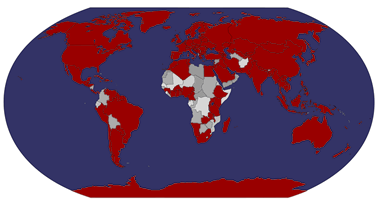The card shows Qinghai–Tibet railway and Yangtze River. The Qinghai–Tibet railway is a high-altitude railway that connects Xining, Qinghai Province, to Lhasa, Tibet Autonomous Region, in People's Republic of China. The total length of Qingzang railway is 1956 km. This railway is the first to connect China proper with the Tibet Autonomous Region, which, due to its altitude and terrain, is the last province-level entity in mainland China to have a conventional railway. Passenger trains run from Beijing, Chengdu, Chongqing, Guangzhou, Shanghai, Xining and Lanzhou.
The line includes the Tanggula Pass, which, at 5,072 m above sea level, is the world's highest rail track. The 1,338 m Fenghuoshan tunnel is the highest rail tunnel in the world at 4,905 m above sea level. The 4,010-m Guanjiao tunnel is the longest tunnel from Xining to Golmod and the 3,345-m Yangbajing tunnel is the longest tunnel from Golmod to Lhasa. More than 960 km, or over 80% of the Golmud-Lhasa section, is at an altitude of more than 4,000 m. There are 675 bridges, totalling 159.88 km, and about 550 km of the railway is laid on permafrost.
The Yangtze River, or Chang Jiang is the longest river in Asia, and the third-longest in the world. The river is about 6,300 kilometres and flows from its source in Qinghai Province, eastwards into the East China Sea at Shanghai.
As the largest river in the region, the Yangtze is historically, culturally, and economically important to China. One of the dams on the river, the Three Gorges Dam, is the largest hydro-electric power station in the world. The section of the river flowing through deep gorges in Yunnan province is part of the Three Parallel Rivers of Yunnan Protected Areas: a UNESCO World Heritage Site.


I've seen a lot of very beautiful Chinese stamps and these are no exception. They are actually on both sides of the back of the card but I had to scan them separately... The more colourful stamps are from a set of 4 stamps issued in 2007, showing Mianzhu Woodprints, which are also included on Chinese Cultural Heritage List. The green stamp is from a set of 6 definitives issued in 2002 with the theme "Protecting the common homeland", and the red one is printed directly on the postcard.


 Maroon
Maroon 










































































































































































No comments:
Post a Comment